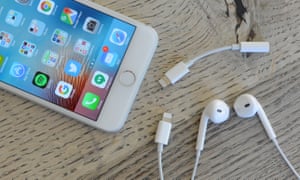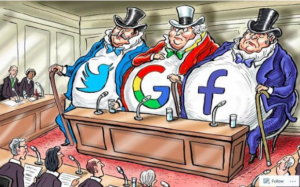Apple’s annual profits fall for first time in 15 years as iPhone sales decline
Lacking innovation, held back by spying, killing it’s car project, charged with corruption including bribery…Apple turns sour

Apple last night reported its first decline in annual sales and profit in 15 years. The Silicon Valley company, which had bounced back from near bankruptcy in 1997 to become the world’s most valuable company today, told investors it sold $215.6bn worth of iPhones, iWatches, Mac computers and other products in the year to 24 September.
That works out as an 8% decrease on Apple’s record $233.7bn of sales it collected in the previous year. The decline in sales hit the company’s profits, which fell 14% to $45.7bn.
It is the first time Apple’s annual sales or profits have declined since 2001, and some analysts are concerned that the world may have reached “peak Apple”, meaning nearly everyone who wants (and can afford) an iPhone or other products already has one.
Sales declined by 9% to $46.85bn in the three months to 24 September – the third consecutive quarterly fall. The sales fall hit the company’s quarterly profits which came in at $9bn – a 19% decline on the same period a year earlier.
The fall in sales was mostly down to declining sales of the iPhone, which is by far Apple’s most important product and accounts for two-thirds of all sales. Apple sold 45.5m iPhones in the quarter, a 5% drop on last year.
Despite the decline in sales and profits, Tim Cook, Apple’s chief executive, said: “Our strong September quarter results cap a very successful fiscal 2016 for Apple. We’re thrilled with the customer response to iPhone 7, iPhone 7 Plus and Apple Watch Series 2.”
The iPhone, which first launched in June 2007, has transformed the telecoms industry but Apple is now facing more intense competition from the likes of Google, which last week released its first branded smartphone, the Pixel, and upstart rivals offering much cheaper smartphone devices in key markets such as China.
The iPhone 7, the latest model, went on sale on 16 September but the company has struggled with supply issues, meaning that most of the uplift from sales will come in the current quarter, which also includes Thanksgiving and Christmas. The current quarter’s sales are also likely to benefit from Samsung’s recall of the Galaxy Note 7, due to a fault that caused some devices to catch fire. Telecoms companies offered Note 7 customers the opportunity to trade in their phones for rival devices such as the iPhone.
Apple forecast that it would sell $76-$78bn of products in the coming quarter, a 1% increase on last year. The company’s cashpile has grown to $237bn, up from $231.5bn three months ago.
The company’s share of US smartphone users remains static at 43.5%, according to research firm eMarketer. In the UK, 31.8% of smartphones are iPhones, a slight increase on last year. The great hope for Apple was emerging markets such as China and India, but after generating huge year-on-year growth, demand has decreased. Apple’s share of the Chinese market has fallen from 9.2% to 6.7% as local competitors up their game and offer decent rivals at much cheaper prices.
Thomas Husson, an analyst at Forrester Research, said: “The new iPhone 7 devices were only on sale for few weeks during the quarter – so it is unlikely they were able to prevent quarterly iPhone sales to continue to decline. It will be key to get early performance indicators of how well the new devices sell ahead of the holiday season. It is especially important in non-western markets like India where there is still significant growth. Overall, Apple is still significantly dependent on its iPhone product line but I would expect again a massive growth for new services like Apple Cloud, Apple Music or Apple Pay.”
Apple’s shares, which had achieved huge growth in recent years, closed at $118.50 on Tuesday – roughly the same level they were at a year ago.
As well as dealing with flagging iPhone sales, Apple has been hit with a record-breaking demand to repay Ireland €13bn in back taxes after the the European commission ruled that a sweetheart tax deal between Apple and the Irish tax authorities amounted to illegal state aid. The commission said the deal allowed Apple to pay a maximum tax rate of just 1%. In 2014, the tech firm paid tax at just 0.005%. The usual rate of corporation tax in Ireland is 12.5%.
